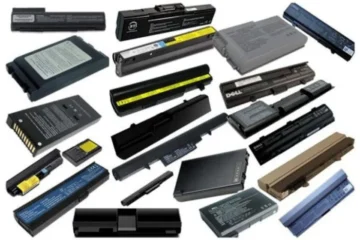Tablets in Education: How They’re Changing the Classroom

Tablets in Education: How They’re Changing the Classroom
MAGCH Tablets are quickly becoming a staple in schooling. Their portability and ever-growing abilities make them perfect for a wide variety of tutorial uses. Here are some ways that capsules are converting the study room:
1. Increased Engagement
Tablets are relatively enticing and interactive, which may help keep college students centered and stimulated in the lecture room. They additionally offer a greater degree of immersion and engagement in learning than conventional textbooks and lectures.
2. Greater access to information
Tablet computers provide students with instant access to a wealth of information and assets.With some faucets, college students can look up definitions, find historic information, and watch instructional movies.
3. Improved Collaboration
Tablets make it easy for college kids to collaborate with each other, whether or not they’re in the same room or throughout the U.S. Students can use capsules to share documents, shows, and other documents like large video presentation files which can be compressed using and take it to the school and colleges. They can also video chat and use other real-time collaboration gear.
4. Enhanced Assessment
With pills, instructors can create more dynamic and interactive checks. For example, they can include video and audio components or create tests that may be routinely graded.
5. Greater Personalization
Because capsules can be personalized to every student’s personal wishes, they have the capacity to greatly enhance the schooling experience for all college students. For example, students with learning disabilities can use tablets with specialized packages that cater to their specific needs.
Tablets are changing the way education is introduced and experienced.With their numerous advantages, pills are likely to become even more common in classrooms in the coming years.
2) The Benefits of Tablets in Education
There’s no question that pills are becoming more and more popular in schools. More and more schools are investing in drugs for their students, and lots of college students are deciding to carry their very own capsules to school. There are a number of motives for this trend. Tablets provide some advantages over conventional textbooks and laptops, and they can be a treasured tool for both students and instructors.
One of the biggest advantages of pills is that they’re pretty portable. Students can easily transport them around with them and do not have to worry about lugging heavy textbooks.This makes it easier for college students to keep up with their work, and it additionally means that they can use their capsules for different purposes, together with being attentive to music or watching movies.
Another benefit of pills is that they’re very consumer-pleasant. Most humans are already familiar with the way to use a tablet, and the touchscreen interface makes it easy to navigate. This is an assessment of laptops, which may be difficult to apply, specifically for younger students.
Tablets also offer a number of functions that are ideal for training. For example, many pills include apps that may be used to get information. There are also some apps that can be used for taking notes or for storing and organizing class materials. And, of course, pills can be used to get access to the Internet, which is a treasured and useful resource for research and keeping up with contemporary events.
In terms of direction, no generation is superior, and drugs are no exception.One of the potential drawbacks of using tablets in training is that they can be a distraction. It’s important for students to discover ways to use their pills in a manner that doesn’t interfere with their mastery. Additionally, pills can be expensive, and now not all households have the funds to purchase one for every toddler.
Despite these limitations, drugs provide some benefits that lead them to a valuable educational tool.When used correctly, they can help students conduct more effective and successful research.
three) The Drawbacks of Tablets in Education
Tablets have become increasingly popular within the schooling sector, as they provide a more interactive and attractive getting-to-know experience for students. However, there are also a few drawbacks to using pills in the classroom. Here are three of the primary drawbacks of capsules in education:
1. They can be a distraction.
While capsules can be a terrific device for academic purposes, they can also be a distraction for college kids. This is specifically the case if college students are using them for non-educational functions, such as gambling games or browsing the Internet. It may be hard for instructors to hold college students focused once they have pills in the classroom, and this may impact their learning.
2. They may be pricey.
Another downside of capsules in school is that they can be expensive. Not all faculties can afford to provide pills for all of their students, and this may create a digital divide between those who’ve gotten admission to tablets and those who do not. This can have an impact on getting to know people, as college students who do not have access to tablets may be at a disadvantage.
three. They require training.
Another issue with taking pills in school is that they require education. Teachers need to study the best way to use capsules in the study room, and this will take time and resources. Additionally, college students additionally need to gain knowledge about how to use the drugs for academic purposes. This may be an undertaking, especially for more youthful students.
four) The Future of Tablets in Education
Tablets are becoming more popular in training because they are more portable and convenient than laptops for accessing academic materials.In addition, drugs provide some features that may be beneficial within the lecture room, such as the potential to effortlessly annotate documents, create multimedia displays, and get admission to a wealth of instructional apps.
Despite the growing reputation of tablets in education, there’s nevertheless some debate about their effectiveness in the classroom. Some argue that pills may be distracting for students and that they’ll now not be capable of providing the same level of instructional content as laptops. Others argue that tablets offer a number of benefits over laptops, along with the ability to be used in more flexible ways and the fact that they’re much less expensive.
The destiny of tablets in training will in all likelihood be decided by the volume to which they may be capable of addressing the issues of people who are skeptical of their use within the lecture room. If capsules are able to offer a more enticing and powerful study environment for students, then they’re likely to emerge as even more famous in education. However, in the event that they stay visible as distractions or are not as good as laptops in terms of educational content material, then their use in training is probably going to stay constrained.










